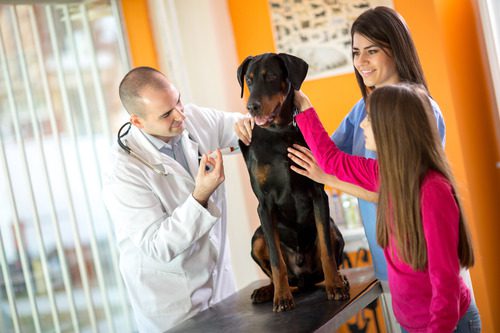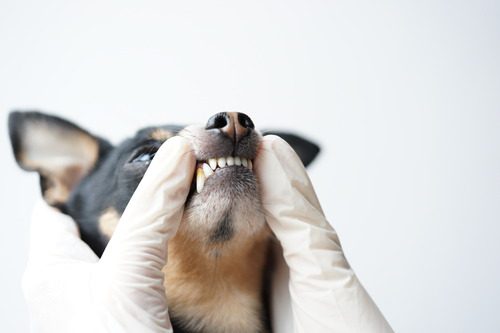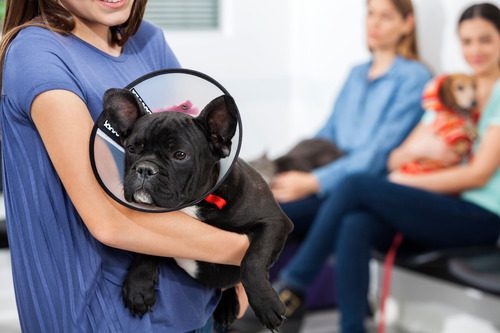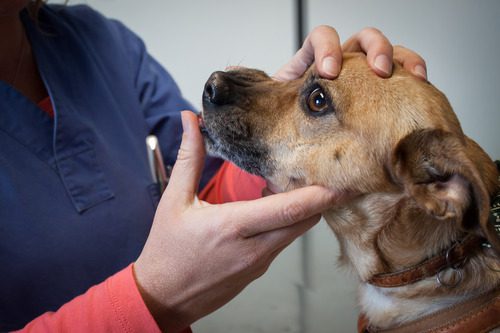Importance of Regular Cat & Dog Vaccines
Ensuring the health and longevity of our pets is a top priority for pet owners. One of the fundamental aspects of pet healthcare is maintaining up-to-date vaccinations. Understanding the importance of cat and dog vaccinations not only helps in preventing various diseases but also contributes to a healthier pet community. At Cornerstone Veterinary Hospital of Clifton Park, we emphasize the significance of regular vaccinations to keep your pets safe and healthy. If you have questions or need to schedule vaccinations for your pets, reach out to us at (518) 383-6254.

What Are Pet Vaccinations and Why Are They Needed?
Vaccinations are designed to trigger immune responses and prepare the immune system to fight future infections from disease-causing organisms. Vaccines contain antigens, which resemble the viruses or bacteria — but don’t actually cause disease — that help prepare the immune system to fight these pathogens if they are encountered in the future.
The Science Behind Vaccinations
Understanding how vaccines work can demystify the process and emphasize their importance. When a vaccine is administered, the immune system is mildly stimulated to produce antibodies. This ‘memory’ allows the immune system to act swiftly and effectively if the real disease ever strikes, reducing the severity or altogether preventing the clinical illness.
Core vs. Non-Core Vaccines
Not all vaccines are essential for all pets. Vaccines are categorized into two groups: core and non-core. Core vaccines are considered vital to all pets based on the risk of exposure, the severity of disease, or transmissibility to humans. Non-core vaccines are optional immunizations depending on your pet’s age, health or lifestyle.
Core Vaccines for Dogs and Cats
For dogs, core vaccines typically include rabies, distemper, canine parvovirus, and hepatitis. For cats, core vaccines often cover rabies, feline distemper (panleukopenia), feline calicivirus, and feline herpesvirus type I (rhinotracheitis).
Schedule and Frequency of Vaccinations
The schedule for vaccinating your pets varies depending on several factors including the type of vaccine, your pet’s age, medical history, environment, and lifestyle. Cornerstone Veterinary Hospital follows scientifically recommended guidelines to determine the vaccination schedule best suited for your pet.
Puppy and Kitten Vaccination Schedule
Puppies and kittens receive a series of vaccines starting at six to eight weeks of age, with booster shots administered every three to four weeks until they are about 16 weeks old. This series is crucial for building a strong immune foundation.
The Role of Vaccinations in Public Health
Vaccinations are not just about protecting individual pets; they play a crucial role in the overall health of the pet population. By vaccinating pets, we can control preventable diseases and reduce the incidence of veterinary emergencies.
Herd Immunity and Community Health
When a high percentage of the pet population is vaccinated, it contributes to herd immunity, decreasing the spread of infectious diseases among both pets and humans.
Legal and Social Responsibilities of Pet Vaccinations
In many places, vaccinating pets against rabies is not only a health measure but also a legal requirement. Compliance with these laws is critical to prevent the spread of this deadly disease to other animals and humans.
Rabies Vaccination Laws
In Clifton Park, NY, rabies vaccinations are legally required for all dogs and cats. Cornerstone Veterinary Hospital provides rabies vaccinations in compliance with local laws to ensure your pet meets state and municipal requirements.
Common Misconceptions About Pet Vaccinations
Despite the proven benefits of vaccinations, some pet owners are hesitant due to misconceptions about vaccine safety and necessity. It’s important to rely on professional advice and scientifically backed data when making health decisions for your pets. If you have concerns about vaccine reactions or side effects, consult with our veterinarians at Cornerstone Veterinary Hospital. Our team is here to provide information and reassurance about the benefits and risks associated with pet vaccines.
Your Role in Ensuring Pet Community Health
Regular vaccinations are a crucial part of your pet’s healthcare routine. By keeping up with your pet’s vaccination schedule at Cornerstone Veterinary Hospital, you’re not only protecting your beloved pets but also contributing to the wider health of the pet community in Clifton Park, NY. Remember, if you need to schedule a vaccination or have any questions about cat and dog vaccine importance, call us at (518) 383-6254.
Recent Posts
Dog Tooth Abscess Burst: What to Do
Dog Tooth Abscess Burst: What to Do You’re petting your dog and notice swelling near their muzzle,…
Infected & Swollen Spay Incision in Dogs
Infected & Swollen Spay Incision in Dogs When your dog undergoes a spay procedure, you expect her…
Dog Tooth Decay Stages
Dog Tooth Decay Stages Dental disease is one of the most common health problems seen in dogs…
About Us
Originally opened as Animal Care Hospital by Dr. Mark Johnston in 1989, the hospital became Cornerstone Veterinary Hospital in 2015 when it was purchased by Drs. Alan and Lisa Knott. The name 'Cornerstone' holds a special place in their hearts, representing not only their Christian faith but also their commitment to being the cornerstone of the community in which they practice. As a family-owned and operated practice, every pet is treated as part of the family, ensuring they receive the highest standard of care. The team at Cornerstone Veterinary Hospital is dedicated to building lasting relationships with clients and their beloved pets, striving to be the cornerstone of the community in which they practice.



